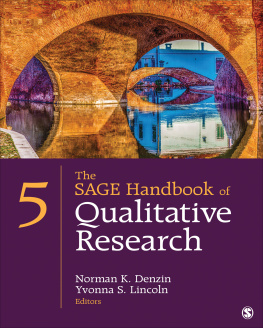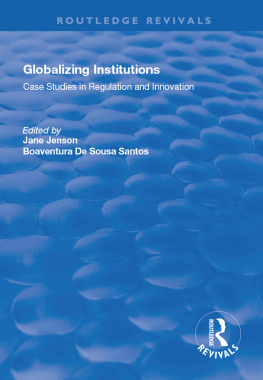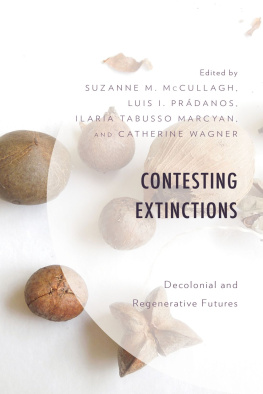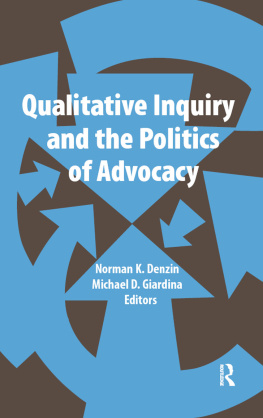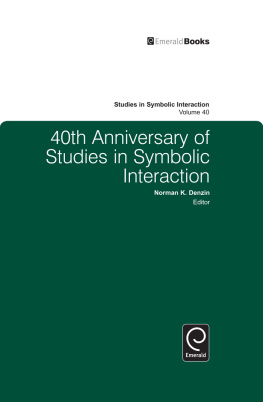Contesting Empire, Globalizing Dissent
CONTESTING EMPIRE,
GLOBALIZING DISSENT
CULTURAL STUDIES AFTER 9/11
Edited by
Norman K. Denzin and Michael D. Giardina
First published 2007 by Paradigm Publishers
Published 2016 by Routledge
2 Park Square, Milton Park, Abingdon, Oxon OX14 4RN
711 Third Avenue, New York, NY 10017, USA
Routledge is an imprint of the Taylor & Francis Group, an informa business
Copyright 2007, Taylor & Francis.
All rights reserved. No part of this book may be reprinted or reproduced or utilised in any form or by any electronic, mechanical, or other means, now known or hereafter invented, including photocopying and recording, or in any information storage or retrieval system, without permission in writing from the publishers.
Notice:
Product or corporate names may be trademarks or registered trademarks, and are used only for identification and explanation without intent to infringe.
Library of Congress Cataloging-in-Publication Data
Contesting empire, globalizing dissent: cultural studies after 9/11 / [edited by] Norman K. Denzin and Michael D. Giardina.
p. cm.
Includes index.
ISBN-13: 978-1-59451-197-4 (hc)
ISBN-10: 1-59451-197-7 (hc)
1. CultureStudy and teaching. 2. September 11 Terrorist Attacks, 2001Influence. 3. Culture conflict. 4. Imperialism. 5. Globalization. I. Denzin, Norman K. II. Giardina, Michael D., 1976
HM623.C67 2006
973.931dc22
2006012176
Designed and Typeset by Straight Creek Bookmakers.
ISBN 13: 978-1-59451-197-4 (hbk)
ISBN 13: 978-1-59451-198-1 (pbk)
Norman K. Denzin thanks Katherine E. Ryan
Michael D. Giardina thanks Elizabeth S. Pittelkow, Elizabeth and Anthony Ciottone,
and Kathryn and George Giardina for making the world a better place.
Contents
Norman K. Denzin and Michael D. Giardina
Arundhati Roy
Peter McLaren
Douglas Kellner
Jan Nederveen Pieterse
Lawrence Grossberg
Toby Miller
Antonia Darder and Luis F. Mirn
CL Cole
Bryant K. Alexander
Christopher Dunbar Jr.
Keyan G. Tomaselli and Handel Kashope Wright
Mary E. Weems
Henry A. Giroux
Norman K. Denzin
Keyan G. Tomaselli
Jack Z. Bratich
Cameron R. McCarthy
We thank Dean Birkenkamp at Paradigm Publishers for his guidance, encouragement, and invaluable help in bringing this project to press. We also thank Beth Davis and Melanie Stafford at Paradigm for skillfully directing us through the production process.
Many of the chapters contained herein were presented as plenary addresses at the Fifth International Biannual Crossroads in Cultural Studies conference held at the University of Illinois at Urbana-Champaign in June 2004. We thank the Institute of Communications Research and the College of Communications for institutional support of the conference as well as those campus units that contributed time, funds, and/or volunteers to the effort.
The conference, and by extension this book, would not have materialized in its current form without the tireless efforts of James Salvo, Grant Kien, David Monje, Aisha Durham, and Kevin Dolan, who were invaluable in their organizational expertise and dedication. We also recognize the nearly one thousand participants who attended the conference for actively seeking to shift the field of cultural studies to engage with many of the questions contained in this volume.
Norman K. Denzin and Michael D. Giardina
Champaign, Illinois
Norman K. Denzin and Michael D. Giardina
Few will have the greatness to bend history; but each of us can work to change a small portion of events, and in the total of all those acts will be written the history of this generation. It is from numberless diverse acts of courage and belief that human history is thus shaped. Each time a man stands up for an ideal, or acts to improve the lot of others, or strikes out against injustice, he sends forth a tiny ripple of hope, and crossing each other from a million different centers of energy and daring, those ripples build a current which can sweep down the mightiest walls of oppression and resistance.
Robert F. Kennedy, June 6, 1966
Painters, writers, singers, actors, dancers, filmmakers, musicians are meant to fly, to push at the frontiers, to worry the edges of the human imagination, to conjure beauty up from the most unexpected things, to find magic in places where others never thought to look. If you limit the trajectory of their flight, if you weight their wings with societys existing notions of morality and responsibility, if you truss them up with preconceived values, you subvert their endeavor.
Arundhati Roy, 2001
The terrorist attacks of 11 September 2001 on the World Trade Center in New York and the Pentagon in Washington, D.C., changed everything. And they changed nothing. They inaugurated a Global War on Terror. And they perpetuated a cycle of state-sponsored terrorism in reply. They brought to the fore public discourses on the nature of freedom, patriotism, and democracy. And they led to the state-sanctioned suppression of freedom, patriotism, and democracy in the very same quarters. They generated worldwide support and sympathy for the plight of those affected by the tragedies. And they likewise generated a global backlash when the U.S. government decided to unilaterally trample another sovereign nation. Business as usual continued. And business as usual was forever changed. It all just depended on through whose looking glass you gazed.
Cultural Studies after 9/11
We are living in a time of global uncertainty. Violence, it seems, is everywhere. Democracy is under attack. America is engaged in a war without end, a permanent war on the world. A politics of fear has offset a politics of hope. What is happening in the world today lies outside the realm of human understanding (Roy 2001b, 32).
Manipulating their versions of geopolitical reality, George W. Bush and his farrago of babysitters have constructed a violent politics of truth concerning America and the so-called threats by terrorists to democracy and freedom. The Bush regime and its neoliberal state allies and global corporatist lackeys use their version of truth and reality as an excuse for armed aggression. In turn, the slogan War Is Peace justifies collateral damage and the loss of lives and culture caused by the weapons of war. Such losses are regrettably necessary if the world is to be made safer and more peaceful. It is irrelevant if the evidence supporting armed aggression does not stand up in a court of law. America is on a mission; centuries of jurisprudence will not stand in the way. And so concepts of justice, truth, and law are carelessly trashed by the dangerously irrational decisions of an imprudent imperial president who does not represent the will of the American majority, and never did (Miller 2004, 294).
Meanwhile, more than 100,000 Iraqis1 and 2,220 Americans have died2 in his dirty little Middle Eastern war. Yet three years later, Iraq looks like a ravaged landscape with looters, ransacked buildings, broken glass, broken windows, blown-out walls, concrete craters in the center of streets, rotting heaps of garbage, rats, fecal stench, borrowed generators produce flickering light, shadows of despair in a darkening gloom, scene after scene of devastation. Outside the deserted National Library in Baghdad, a tethered donkey lunches on flowers in the garden. A statue of Saddam is still standing out front (Rodenbeck 2003, 22), but not his weapons of mass destruction, which apparently never existed in the first place. Partially hidden by a row of American tanks, the scene seems too staged to be true.



